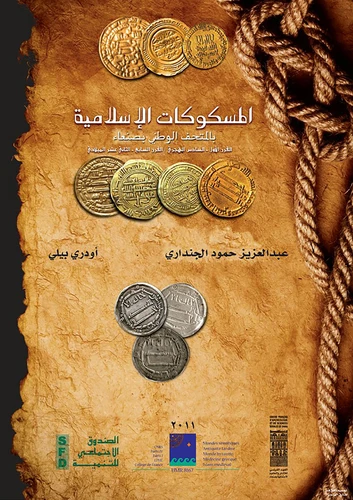Islamic Coins. National Museum of Sanaa. From the 1st/6th Century to the 7th/12th Century
Par : ,Formats :
Disponible dans votre compte client Decitre ou Furet du Nord dès validation de votre commande. Le format Multi-format est :
- Pour les liseuses autres que Vivlio, vous devez utiliser le logiciel Adobe Digital Edition. Non compatible avec la lecture sur les liseuses Kindle, Remarkable et Sony
 , qui est-ce ?
, qui est-ce ?Notre partenaire de plateforme de lecture numérique où vous retrouverez l'ensemble de vos ebooks gratuitement
Pour en savoir plus sur nos ebooks, consultez notre aide en ligne ici
- Nombre de pages122
- FormatMulti-format
- ISBN978-2-909194-56-1
- EAN9782909194561
- Date de parution19/09/2016
- Protection num.NC
- Infos supplémentairesMulti-format incluant PDF avec W...
- ÉditeurCentre français de recherche de ...
Résumé
The present volume of the catalogue Islamic Coins of the National Museum of ?an?a' comprises the collection of Islamic coinage from the beginning of Islam up to the end of the 7th/12th centuries. The catalogue is organized by name of dynasty, in chronological order. The majority of these coins are from Yemen and were minted by the local dynasties who took their monetary independence from the end of the 3rd/9th century.
Some Umayyad and Abbasid dirhams are included: they are from Iran, Mesopotamia and Levant.
Some Umayyad and Abbasid dirhams are included: they are from Iran, Mesopotamia and Levant.
The present volume of the catalogue Islamic Coins of the National Museum of ?an?a' comprises the collection of Islamic coinage from the beginning of Islam up to the end of the 7th/12th centuries. The catalogue is organized by name of dynasty, in chronological order. The majority of these coins are from Yemen and were minted by the local dynasties who took their monetary independence from the end of the 3rd/9th century.
Some Umayyad and Abbasid dirhams are included: they are from Iran, Mesopotamia and Levant.
Some Umayyad and Abbasid dirhams are included: they are from Iran, Mesopotamia and Levant.



